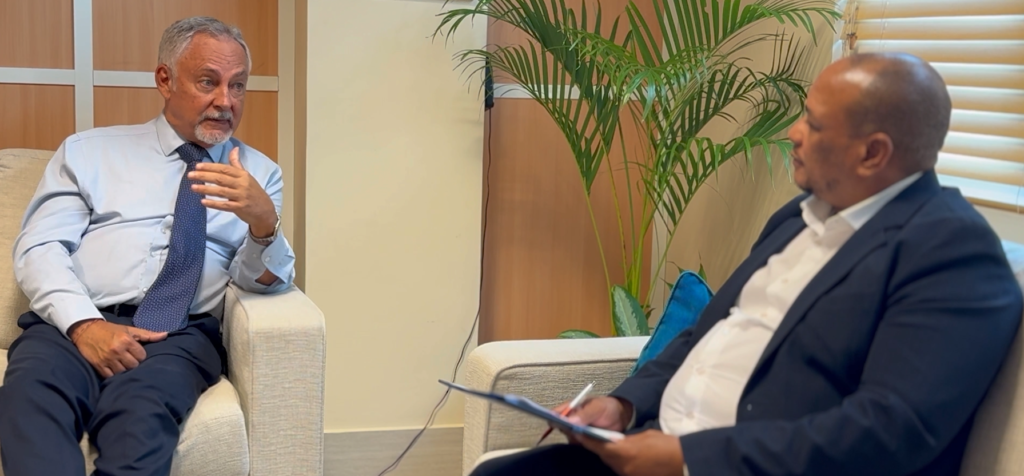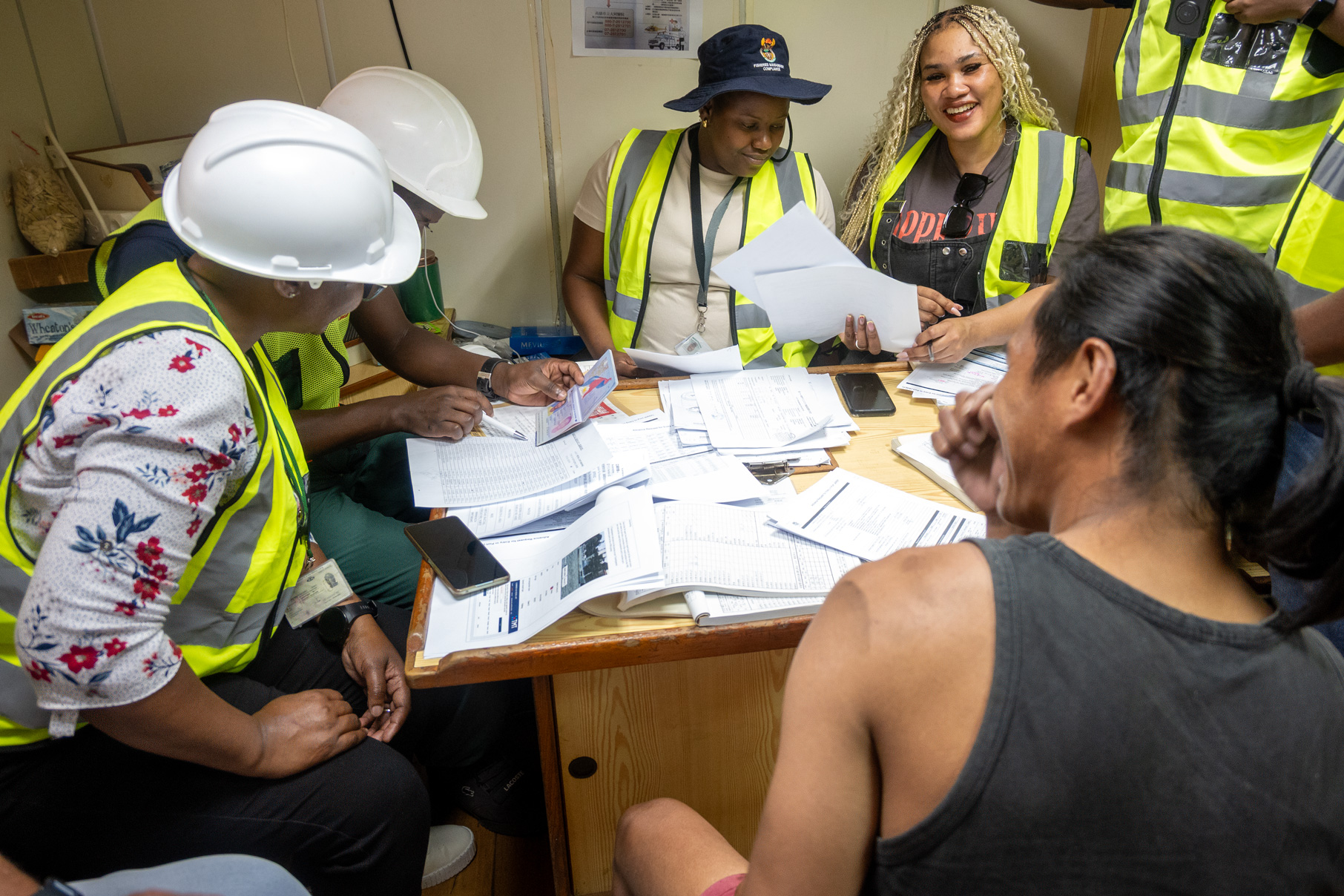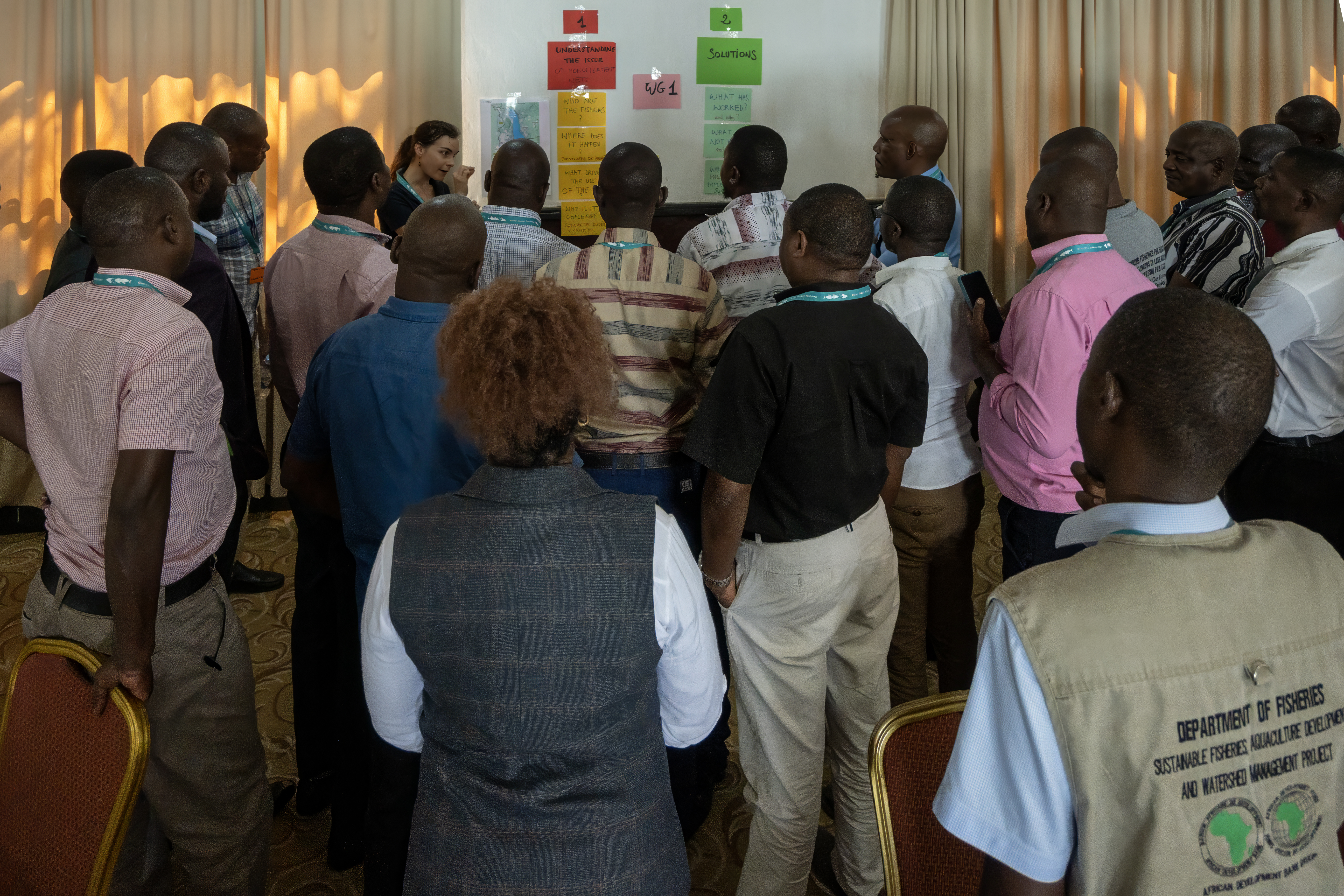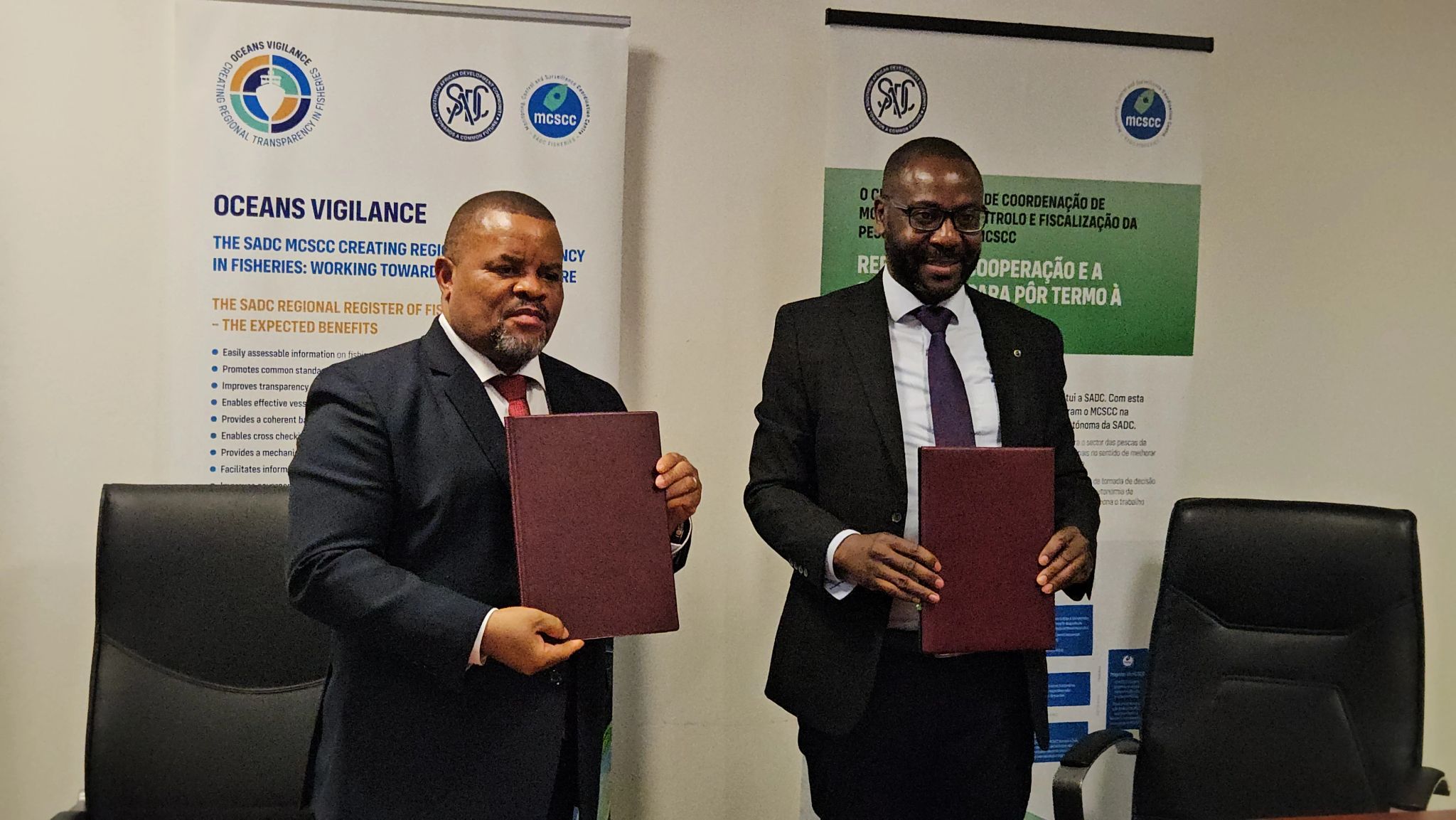Dialogue 1: with H.E. Jean-François Ferrari – The Minister for Fisheries and the Blue Economy, the Republic of Seychelles
The Dialogue Series – Discussions with our leaders and champions –
Victoria, Seychelles – January 2025

Regional cooperation and transparency: to protect our fisheries
“We can achieve sustainable fisheries management if we are absolutely transparent” these words from Minister Ferrari set the scene for the first dialogue in our new series of discussions with our leaders and champions. Seychelles’ Minister for Fisheries and the Blue Economy Jean-François Ferrari met with the Southern African Development Community’s (SADC) Monitoring, Control and Surveillance Coordination Centre (MCSCC) representative Dr Motseki Hlatshwayo to share ideas on regional cooperation and transparency, two of the key tools that the Seychelles government have been using and promoting to ensure sustainable fisheries management.
Seychelles has long been a leader in regional fisheries cooperation within SADC, with Minister Ferrari continuing this role. Recognising that fisheries are a vital pillar of the country’s economy, he stresses that their sustainability requires coordinated efforts. “We cannot do it alone – for sustainable fisheries management, we need the involvement of every fishing nation in the region,” he said. Minister Ferrari highlighted that illegal, unreported, and unregulated (IUU) fishing is one of the greatest threats to both the region’s fisheries and the social, economic, and cultural benefits they provide. Focusing on the valuable regional tuna fishery, he emphasised that combating illegal fishing is a key priority for Seychelles, but success can only be achieved through regional cooperation and information exchange. “It is only through a regional approach to fighting IUU fishing that we will succeed,” he affirmed.
In 2023, Seychelles signed the landmark Charter establishing the MCSCC. As a party to this Charter, Seychelles gains valuable insights and intelligence on regional fishing vessels, supporting their MCS activities. This includes regular information on fishing activities, helping to verify the history of vessels requesting access to their waters and ensuring they haven’t been involved in IUU fishing. These tangible benefits highlight the MCSCC’s growing impact and its alignment with the SADC Ministers’ 2008 Statement of Commitment on IUU fishing. With an EEZ of nearly 1.4 million square kilometers, Seychelles relies on this support to strengthen its MCS efforts. Minister Ferrari emphasised that “SADC is a grouping of like-minded countries, and we would like to see more member countries doing what we are doing, putting more emphasis on fighting IUU fishing”.
A key priority for the MCSCC is the establishment of the SADC Regional Register of Fishing Vessels (RRFV). “The idea is that a regional register will improve compliance and bring greater benefits to Member States by setting minimum standards for vessels entering SADC waters,” said Dr Hlatshwayo. The register aims to strengthen monitoring and accountability of fishing vessels, similar to the benefits Seychelles has seen from the Indian Ocean Tuna Commission’s register. This initiative aligns with Seychelles’ commitment to transparency in fisheries, a core element of its transition to a sustainable ocean economy. Seychelles is a strong supporter of the Fisheries Transparency Initiative (FiTI) and promotes it globally. “We can only achieve sustainable fisheries management through full transparency,” said Minister Ferrari. “Greater openness fosters compliance and encourages all actors to meet the standards needed to protect our fisheries for the benefit of all.”
Transparency, science-based decision-making, and regional cooperation are key to the success of Seychelles’ fishing industry.
The Minister is ready to share these lessons: “Seychelles strongly believes that we need to take the leadership in bringing together all the countries of the Southwest Indian Ocean.”
This leadership will be crucial in driving the full operationalisation of the MCSCC and strengthening efforts to combat IUU fishing in the SADC region — building on over two decades regional commitment to protecting our fisheries.
Dr Motseki ended the dialogue thanking the Minister for his leadership and stewardship in the region and his support for the MCSCC and commitments to support this regional collaboration.
THE DIALOGUE SERIES: DISCUSSIONS WITH OUR LEADERS AND CHAMPIONS
The Southern African Development Community (SADC) prioritises fighting illegal, unreported and unregulated (IUU) fishing to protect the region’s people, waters and economy from the devastating impacts of illegal fishing. The SADC is coordinating and driving regional monitoring, control and surveillance (MCS) collaboration through the SADC MCS Coordination Centre (MCSCC), which was established in 2023. The establishment of the MCSCC is a long-awaited and historical milestone for the SADC fisheries sector. It is the culmination of over two decades of regional commitments to improving cooperation and promoting responsible and sustainable use of all fisheries resources in the SADC region – both inland and marine resources. The priority is now on operationalising the MCSCC, for the benefit of all Member States and their population. To sustain these commitments and support those next steps, the MCSCC has engaged in a series of dialogues with our leaders and champions to share the voices of those supporting and leading the changes that we need to make to protect our fisheries and to move towards our common future.
The dialogue series was made possible thanks to the support of the Waterloo Foundation and Oceans Five through the Oceans Vigilance project of the MCSCC.
For more updates, stay tuned on our website and social channels.

Follow us on our social media pages


